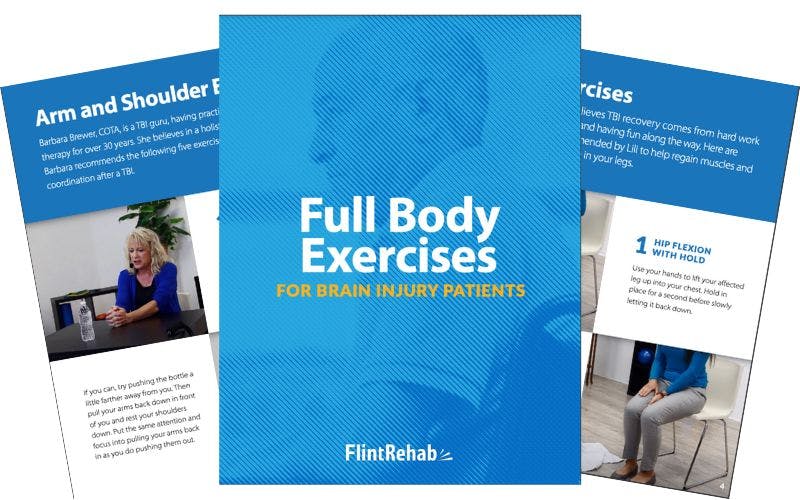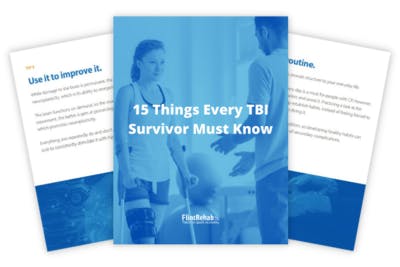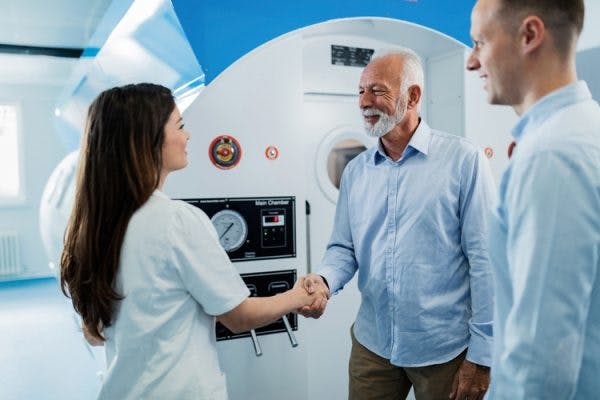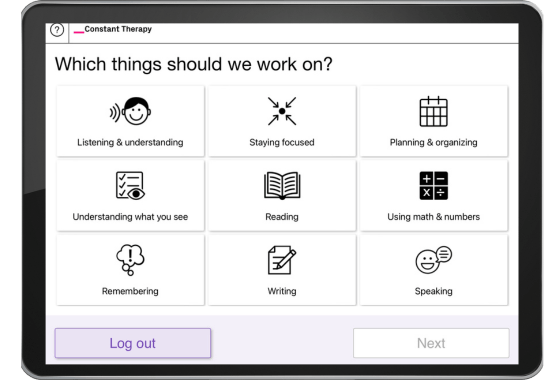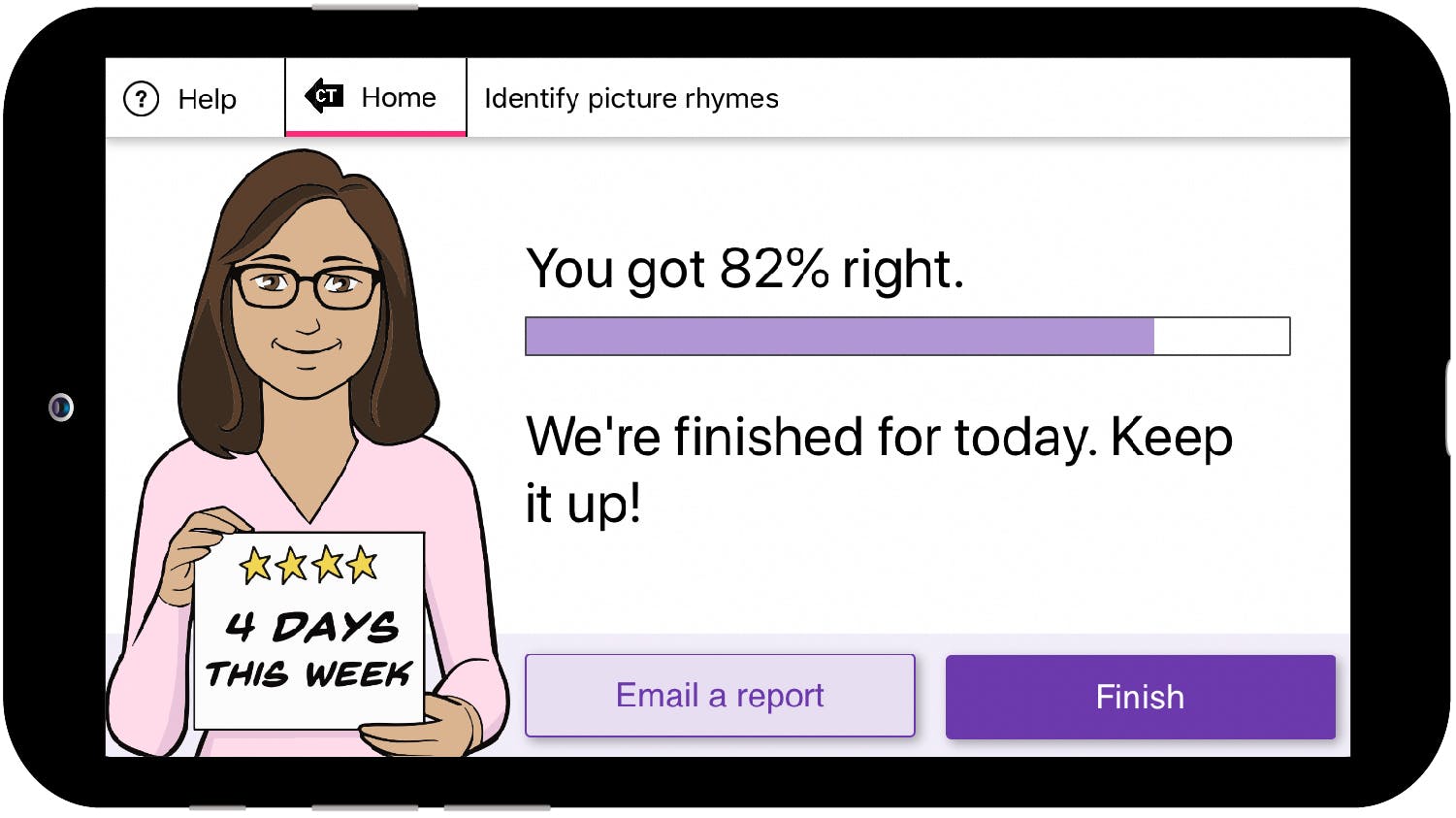There are various complications of traumatic brain injury (TBI) that may arise immediately after the event or later in recovery. The risk of developing complications is impacted by many factors, such as the location and severity of the brain injury.
This article will discuss potential medical complications of traumatic brain injury including physical and neurological conditions, as well as degenerative diseases. It will further discuss possible management techniques that can be used to help treat the complications of TBI.
Understanding Traumatic Brain Injury Complications
Every brain injury is different, therefore every survivor experiences a unique combination of secondary effects. The effects that occur are influenced by the areas of the brain impacted and the severity of the injury: mild, moderate, or severe.
Some of the most common effects survivors may experience include impaired movement, spasticity, and cognitive dysfunction, which are addressed during rehabilitation. In addition to these effects, however, survivors may develop further complications that require special medical attention.
Complications may be a direct result of traumatic brain injury or other factors. For example, individuals may develop weakness or pressure sores if they are on bed rest for several days or weeks. Some complications may also last longer than other effects depending on the type of TBI sustained.
For instance, the effects of a concussion often resolve after a few weeks or months, while the complications of a diffuse axonal injury (usually a more severe type of TBI) may require rehabilitation for many years.
Understanding what complications may occur after a traumatic brain injury can help you and your loved ones know what signs and symptoms to look for and be prepared.
What Are the Complications of Traumatic Brain Injury?
No two brain injuries are the same, and neither are the complications of traumatic brain injury survivors may develop. Some complications may be noticeable while the survivor is in the hospital, which allows the medical team to intervene early.
Other complications may not develop or become apparent until later stages of TBI recovery. It’s important for survivors and caregivers to pay close attention to any new or persistent symptoms after discharge from the hospital. Consult with your doctor as soon as possible if you notice any new symptoms or signs of TBI complications.
Here are some of the most common medical complications of traumatic brain injury that survivors may develop:
Pressure Ulcers
A pressure ulcer, commonly referred to as a bed sore, is a localized injury to the skin or underlying tissue, usually over a bony area. Pressure ulcers can develop within a few hours of sustained pressure in one area. They are likely to develop due to factors such as friction, immobility, pressure, infection, or sepsis.
If left untreated, pressure ulcers can result in tissue death or, in extreme cases, lead to life-threatening infections. Therefore to prevent pressure ulcers, it’s important for you or a caregiver to adjust your body frequently (at minimum every two hours) when lying in a bed for prolonged periods of time.
Infections
The meninges are protective tissues that surround the brain and protect it from bacteria. However, when the brain sustains a moderate to severe injury, skull fractures or penetrating wounds can sometimes tear the meninges.
When this occurs, bacteria may enter the brain and cause infections. If left untreated, an infection of the meninges, or meningitis, can spread to the rest of the nervous system and cause further damage.
Pneumonia
Pneumonia is a type of infection that inflames the air sacs in one or both lungs. The air sacs may fill up with fluid or pus which can be life-threatening and requires immediate medical care. Survivors of brain injury are more prone to developing pneumonia if they require the use of a ventilator.
Additionally, aspiration pneumonia is seen frequently among survivors of TBI with dysphagia (swallowing difficulties). Some of the most common symptoms of pneumonia include fever, chills, cough with phlegm, or difficulty breathing.
Sepsis
Sepsis is another life-threatening complication of traumatic brain injury. This occurs when chemicals that are released into the bloodstream to fight an infection cause inflammation throughout the body. Inflammation can then create changes in multiple organ systems and lead to organ failure. Signs of sepsis include fever, low blood pressure, rapid heart rate, difficulty breathing, and/or confusion.
Headaches
Tension or migraine-like headaches are common complications of traumatic brain injury. Survivors may experience frequent headaches within a week after the injury and they can persist for several weeks or months.
Vertigo
Vertigo is a condition characterized by dizziness after a TBI that can make it feel like the room is spinning. Dizziness and vertigo after a brain injury can derive from various causes including inner ear problems, damage to the cerebellum or occipital lobe, medication, migraines, or dehydration.
Seizures
Survivors may develop seizures after a TBI, which occur when there is sudden, disorganized electrical activity in the brain. Seizures may consist of jerking movements, unresponsiveness, lip-smacking, and dizziness.
Post Traumatic Epilepsy
Recurrent seizures after TBI are diagnosed as post-traumatic epilepsy. This condition often occurs when the frontal lobe and the temporal lobe are impacted after a TBI.
Fatigue
Survivors have a high risk of experiencing fatigue after brain injury due to the brain recovering and from the secondary effects of TBI. After TBI the brain uses most of its energy for healing, leaving less energy for other tasks, resulting in cognitive fatigue. Depending on the secondary effects experienced, survivors may also be fatigued physically or psychologically.
Bladder and/or Bowel Dysfunction
Bladder and/or bowel dysfunction may also occur in survivors of traumatic brain injury. This can cause urinary or fecal incontinence or constipation. Bladder and bowel dysfunction can further increase the risk of more severe conditions if left untreated.
Deep Vein Thrombosis and Pulmonary Embolism
After a brain injury, survivors are susceptible to developing a deep vein thrombosis (DVT), especially if they are immobile for a long period of time. A DVT refers to the formation of one or more blood clots in the large veins of the body, commonly the legs.
If a portion of a clot breaks off, it may travel to throughout the body. This can lead to more serious complications, such as a pulmonary embolism (a blockage of an artery in the lungs). Both DVTs and pulmonary embolisms are severe conditions that can cause other life-threatening conditions such as a stroke.
(Related: Can a head injury cause a stroke?)
Hypopituitarism
The pituitary gland is a small gland located at the base of the brain that releases hormones and regulates other endocrine glands such as the thyroid and adrenal glands. Pituitary dysfunction can occur after brain injury when the pituitary gland is impacted by trauma or skull fractures.
This can cause the production of hormones to be affected and impact metabolism, mood, growth, sleep, and other bodily functions. Hypopituitarism can also increase the chances of depression and fatigue.
Blood Vessel Damage
After a traumatic brain injury, several small or large blood vessels in the brain may become damaged. This increases the risk of life-threatening conditions such as a stroke.
Hydrocephalus (Fluid Buildup in the Brain)
Hydrocephalus is a TBI complication that occurs when cerebrospinal fluid builds up in the brain, causing increased pressure and swelling. Survivors with hydrocephalus may experience headaches, nausea, impaired motor and cognitive function, or urinary incontinence.
Cranial Nerve Damage
When the brain sustains an injury at the base of the skull, cranial nerve damage may occur. There are 12 pairs of cranial nerves that connect the brain to other parts of the body. Depending on which nerves are affected, this damage can lead to a variety of symptoms such as:
- Paralysis of the facial muscles
- Altered sense of taste or smell
- Impaired vision
- Difficulty swallowing
- Ringing in the ear (tinnitus) or hearing loss
Degenerative Brain Diseases
Studies show that repeated or severe traumatic brain injuries may increase the risk of degenerative brain diseases such as Parkinson’s disease, a neurodegenerative condition that causes movement disorders such as tremors and rigidity.
A more severe brain injury can increase the risk of dementia, a group of conditions that cause impaired memory and judgment. Repeated TBIs may also increase the risk of Alzheimer’s disease, a type of dementia that causes a progressive loss of memory and confusion.
Chronic Traumatic Encephalopathy
Chronic traumatic encephalopathy (CTE) is a condition that causes symptoms of dementia along with movement difficulties. It can also be referred to as dementia pugilistica or boxer’s dementia, because it’s believed to be caused by multiple blows to the head or repeated injuries.
Sleep Disturbances
Sleep disturbances are common complications of traumatic brain injury. When areas of the brain responsible for sleep such as the thalamus and hypothalamus are impacted, the normal sleep-wake cycle may be disrupted. This can cause insomnia, post-traumatic hypersomnia, or impaired nighttime sleep.
Coma
A coma occurs when an individual is unconscious and unable to respond to any stimulation. This is usually the first stage of recovery in traumatic brain injury. Survivors may emerge from a coma after a few days or weeks, at which time they may enter a vegetative state.
In a vegetative state the individual is unaware but may open their eyes, make sounds, and respond to reflexes. An individual may also enter a minimally conscious state which is a condition of severely altered consciousness with some signs of awareness.
Brain Death
Brain death occurs when there is no measurable activity in the brain and the brainstem. Breathing devices are necessary to keep the individual alive.
Polytrauma
Polytrauma occurs when an individual experiences injuries to multiple systems which can cause pulmonary, cardiovascular, and gastrointestinal dysfunction. Polytrauma can also consist of fluid and hormonal imbalances, deep vein thrombosis, blood clots, and nerve injuries.
Again, it’s very important to seek emergency medical care if you experience any new symptoms after traumatic brain injury because they can lead to severe, long-term complications.
Management Techniques for TBI Complications
Complications of traumatic brain injury can be strategically managed with the help of your doctor and medical team. Treatments for TBI vary and may require a combination of methods such as cognitive rest or medication.
Some complications such as fatigue may interfere with the rehabilitation process, so it’s important to be proactive and get the help you need. Timely management of TBI complications can allow you to participate in rehabilitation and focus on treating the secondary effects of your injury to promote recovery.
Survivors and caregivers should pay close attention to any new or persistent symptoms after discharge from the hospital. If you are experiencing any complications of traumatic brain injury, seek emergency medical attention for a proper diagnosis and treatment.
Staying Aware of TBI Complications
Survivors may develop various complications of traumatic brain injury which can show soon after the event or later on during recovery. TBI complications can include pressure ulcers, seizures, vertigo, and much more. Brain injuries also increase the chances of further developing neurodegenerative diseases such as Parkinson’s or Alzheimer’s.
While managing complications of traumatic brain injury can be challenging, staying aware of any new or recurrent symptoms can help survivors receive proper medical attention in a timely manner.


